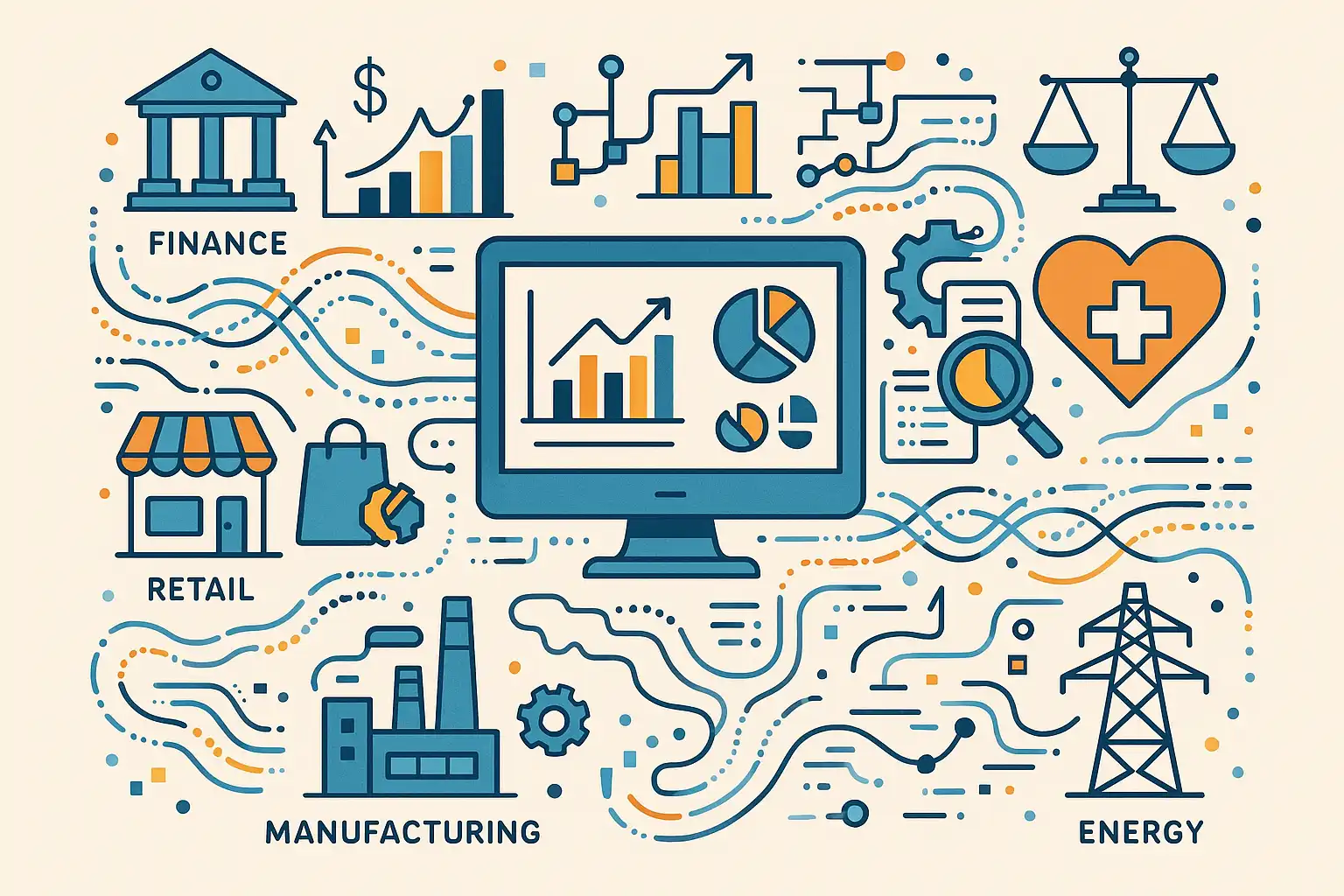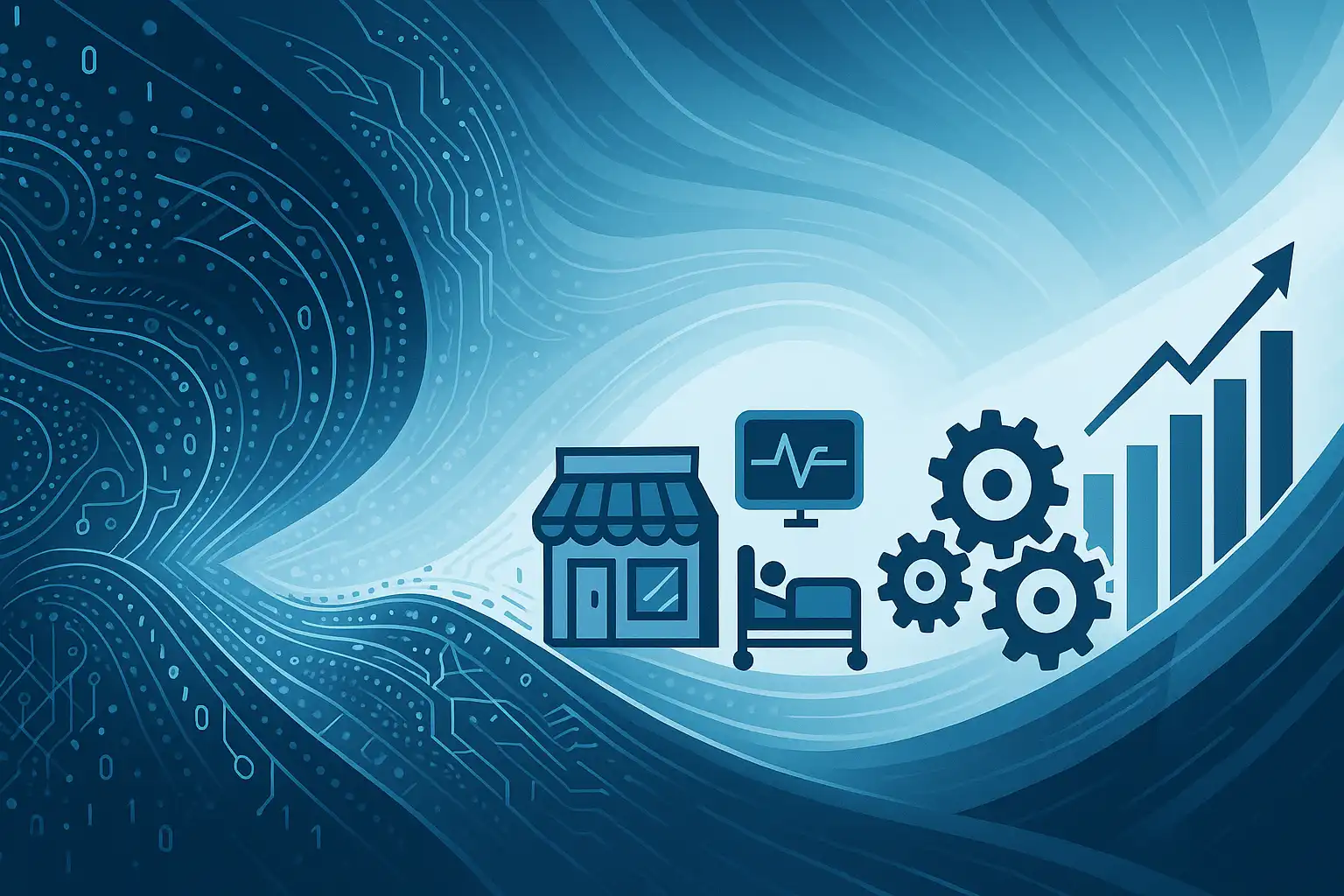
What is industry-specific data science and how does it give businesses an advantage?
Industry-specific data science is the practice of tailoring data analysis, machine learning, and artificial intelligence to a business’s unique sector. Right from the start, it helps companies move beyond general insights and focus on solutions tuned to their world. This approach delivers real competitive advantage because it reveals patterns, risks, and opportunities that generic tools often miss. By using industry-specific data science, organizations can reduce guesswork, predict trends, and streamline operations for their exact challenges—whether in banking, healthcare, retail, or manufacturing.
For example, a retailer using industry-specific data science can track buying patterns for each store location, adapt stock in real time, and personalize offers to customers. Meanwhile, a fintech company might detect subtle fraud signals or optimize loan approvals using models designed for financial data. In both cases, the data science process is shaped by the needs and nature of that industry, leading to more accurate, actionable results compared to one-size-fits-all analytics.
These advantages—smarter operations, fewer risks, and faster responses—create a strong edge over competitors who rely on basic or “vanilla” analytics. With the right mix of data and algorithms, companies can anticipate market shifts, improve customer experiences, and make better strategic decisions.
Industry-specific data science gives organizations a clear business edge by generating insights tailored to their needs. Unlike broad, generic analytics, these focused solutions enable smarter decision-making, reduce costly errors, and unlock new opportunities. The key is customizing everything from data collection to model building so that outcomes fit actual business goals. As industries become more data-driven, those who adopt these targeted strategies will outpace those who do not.
With the rise of artificial intelligence and advanced analytics, businesses can now go far beyond descriptive reporting. They can predict, optimize, and automate at levels relevant to their sector. From anticipating health risks in hospitals to managing energy loads in utilities, industry-specific data science ensures that every analytics touchpoint drives real value, not just numbers on a dashboard.

How can companies develop and implement effective industry-specific data science strategies?
To build a successful strategy, organizations start by identifying their core business goals and challenges. It is essential to tie every data science step directly to what matters most for their sector. For example, a manufacturer focused on reducing downtime will prioritize predictive maintenance and process optimization, while a healthtech startup may focus on patient risk scoring and personalized care plans.
Here are the main components for implementing a high-impact industry-specific data science solution:
- Define clear objectives: Pinpoint the business outcomes the project should deliver. Metrics like sales growth, customer satisfaction, or cost reduction provide a target for data models to support.
- Collect relevant data: Focus on gathering data types specific to the industry—such as transaction records in finance, sensor readings in manufacturing, or electronic health records in medicine.
- Customize analytics and machine learning: Use models and algorithms that reflect industry trends, regulations, and conditions. For example, fraud detection in banking needs specialized techniques compared to supply chain forecasting.
- Integrate with operations: Embed insights into day-to-day workflows so employees can act on recommendations immediately. Automation may help scale these benefits across large teams or locations.
- Cultivate a data-driven culture: Encourage staff to use data insights for proactive decisions, making improved performance a habit, not a one-off event.
One important aspect is the selection of tools and platforms that are flexible yet robust. Open-source tools like Python and R offer versatility, while cloud-based solutions can scale analytics across global operations. Additionally, working with a specialized data science service often accelerates development and helps avoid common pitfalls by leveraging field-tested expertise.
Which industries have shown the greatest gains from industry-specific data science?
Many sectors now stand out for their successful use of tailored data science. Let’s look at some concrete examples:
- Fintech: Advanced analytics drive fraud detection, credit risk scoring, customer segmentation, and algorithmic trading.
- Healthtech: Predictive models help hospitals reduce readmission rates, optimize staffing, and provide early warnings for patient deterioration.
- Retail: Customer behavior analytics guide inventory planning and targeted marketing for both physical and online stores.
- Manufacturing: Predictive maintenance prevents equipment failures, while quality control is improved by real-time monitoring and anomaly detection.
- Industry 4.0: Data-driven automation and intelligent supply chains boost efficiency and reduce waste across production environments.
- Legaltech: Automation of document review and risk assessment speeds case resolution and improves compliance.
- Greentech: Optimization models support energy management and sustainable practices in utilities and environmental monitoring.
- Proptech: Real estate firms use data science to predict property values, personalize recommendations, and improve portfolio management.
For example, retail giants leverage data science workflow frameworks to keep shelves stocked with exactly what customers want, minimizing leftovers and shortages.
Another powerful illustration comes from healthtech, where predictive analytics guides care pathways, reducing unnecessary procedures and improving patient outcomes. In fintech, specialized machine learning models help spot unusual transactions, lowering fraud losses and building customer trust.
Customization is key
Every industry has its own priorities, regulations, and sources of risk. That is why a one-size-fits-all approach often fails to meet critical needs. By customizing each step—from data collection to interpretation—organizations can build solutions that reflect their realities. For example, a manufacturing plant may use sensors to monitor equipment, applying models that predict specific machine failures, while a legal firm might analyze past case data to prioritize workload and compliance checks.
It’s important, too, that data science teams work closely with business leaders and domain experts. This ensures that technical solutions are practical and matched to on-the-ground conditions.
What are the main challenges in adopting industry-specific data science?
While the benefits are clear, the journey is not always easy. Some common obstacles include:
- Data quality and integration: Different sources and formats can make it hard to build a unified view.
- Talent shortage: It can be difficult to find professionals who know both the technical and industry requirements.
- Scalability: Pilots work in one part of the business, but rolling out across all departments requires robust engineering and support.
- Change management: Employees need support to adopt new tools and trust data-driven decisions.
- Compliance and security: Especially in sectors like healthcare and finance, privacy rules add complexity to data handling.
If you’re considering how to overcome these roadblocks, it may help to review real-world examples of Data Science Challenges and solutions in sectors similar to yours.
Steps to smooth adoption
Organizations often succeed by starting small, focusing on one clear use case, and building from there. Quick wins help get buy-in for larger projects. Investing in training and change management also pays off, making it easier for teams to shift from intuition-based to data-driven thinking. Cloud and hybrid platforms can offer scalable resources, while partnerships with external experts fill skill gaps.
Strategic alignment is also critical. For sustained impact, data science initiatives should connect directly to the company vision and industry trends. Reviewing your data strategy alignment regularly ensures that analytics efforts remain relevant as the market evolves.

FAQ
How does industry-specific data science improve decision-making compared to generic analytics?
Industry-specific data science incorporates sector-specific knowledge, metrics, and challenges into every analysis. This means the insights generated are more accurate and actionable for the business context. In contrast, generic analytics may overlook key trends or use assumptions that don’t fit the industry, leading to less effective decisions.
Can small businesses benefit from tailored data science solutions, or is it just for large corporations?
Both small and large businesses can benefit. Small firms can use focused analytics to improve efficiency, reduce costs, or find new customer segments. Advances in cloud computing and open-source tools have made it more affordable for companies of any size to build or access tailored data science solutions.
What are examples of machine learning applications in industry-specific data science?
Applications vary across industries. In retail, machine learning predicts demand and recommends products; in manufacturing, it forecasts equipment failures; in finance, it detects fraud; and in healthtech, it identifies medical risks. Each use case relies on industry data and business-specific goals to train effective models.
How often should industry-specific data science models be updated?
Models should be reviewed and updated regularly, often quarterly or as business conditions change. Continuous monitoring helps ensure the models stay relevant and accurate, especially as markets, regulations, or data sources evolve over time.
